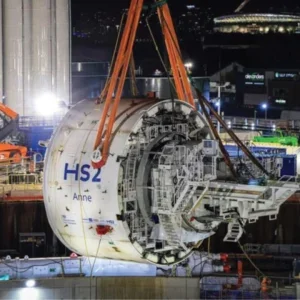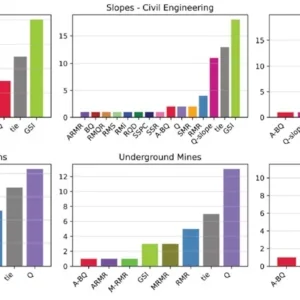Of course Alastair Morton was not a tunneller, but without his enthusiasm, drive and ability there can be no doubt that one of the greatest tunnelling achievement of the Twentieth Century would never have come to fruition.
The enthusiasm of Tunnel Engineers for the Channel Tunnel Project had always been high, ever since it was first proposed by French engineer Albert Mathieu in 1802, the problem had always been ‘the money’.
In the Spring of 1985, Prime Minister Margaret Thatcher and President Francois Mitterrand invited bids for the construction of a ‘Fixed Link’ across the Channel. Immediately upon award the winning bidders, Transmanche Link, excitedly set about the task of building the link, leaving the business of raising the money to an embryo Eurotunnel.
It was not long before it was realised that Eurotunnel needed a strong team leader who knew his way around the banking and investment world, and in mid-1986 Alastair Morton became Eurotunnel’s chairman.
Not only did Alastair instantly appreciate the magnitude of the task of raising £6bn (US$10.8bn), but he also quickly realised that the time-frame was ridiculously short. Bearing in mind that the overall project completion time was seven years, the preparation time for a financing of this magnitude would normally be around two years, and the Stock Exchange had its own programme, completion of the financing by November 1987 was practically impossible.
Concurrent with the financing, the project had to run the gauntlet of the Select Committee process in both Houses of Parliament – with all the risks to the project costing that that implied.
By a combination of tenacity and a refusal to contemplate failure, Alastair inspired his team at Eurotunnel to quite extraordinary efforts which were crowned with success – despite the world stock markets’ ‘Black Monday’ only two days before completion.
With the success of the financing Alastair turned his attention to the project, with the two almost incompatible goals of keeping more than 200 lending banks and the investors happy, and ensuring that the construction contractors kept within time and budget and hopefully did not go bust on the way.
Transmanche Link often found Alastair very abrasive and confrontational, and perhaps could not always see that the banks would have lost faith in him if he had acted otherwise. For their part the banks were always anxious to be reassured, every step of the way, that value for ‘their’ money could be demonstrated on a monthly basis.
Alastair was never a man to shrink from a challenge. In fact he seemed to thrive on adversity. He set himself very high personal targets, and expected no less of those around him.
Those of us who stayed the course with him found the experience exhilarating – though we soon found that he did not suffer fools (never mind gladly!). He cared greatly for his team and achieved results by example rather than exhortation.
Projects on the scale of the Channel Tunnel are not launched very frequently, but when they are they will always need leaders of the calibre of Alastair Morton.
I for one shall not forget him.
By Colin Kirkland






